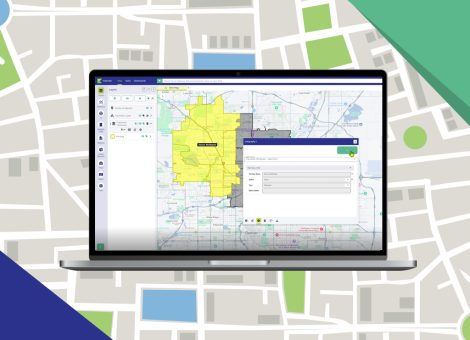ICSC New England recap - Suzanne Beltran
What was the experience like speaking at ICSC New England alongside other industry experts, and what was discussed on this panel?
This was actually the first panel I have ever been on and I really enjoyed it. We prepped ahead of time, so we had an idea of questions that were coming, but we didn’t know how the other panelists were going to respond so it was kind of nice to be able to be fully prepared to have discussions about it.
The theme of the panel was “How big data and AI are revolutionizing decision making” and mobility data was the hot topic. We focused a lot on what it can and can’t do for decision-making, how our own companies are using it, as well as the other options our companies have to offer instead of mobility data. We also discussed our opinions on AI, its use cases, and how it differs from machine learning.
In terms of the experience within the panel, I came in as a more of analytics perspective, which hopefully made for an interesting discussion as we covered a lot of bases between us.
Can you elaborate on a specific example or scenario where the integration of big data and AI has led to a transformation in retail real estate decision-making processes?
I would say Kalibrate is built on the foundation of using data and other technology to help retailers in their decision-making process. We see our clients using multiple different data sets to help inform and predict how large their trade area is, the amount of draw their location will receive, and of that draw, what the customer profiles are. Especially with our new solution, Competitive Insights, which utilizes mobility data, there are countless ways that retailers are using big data and AI to transform the way they are making their location decisions.
Why is it crucial for retail real estate professionals to understand the impact of big data and AI on decision-making?
Retail real estate professionals who aren’t utilizing this type of technology just won’t be as informed because they won’t know the type of customers that are drawn to that particular location, how much traffic that location gets, what the trade area is and so on. From the owner perspective, it is crucial for them to answer the question – which businesses should I target to reside at my location?
As far as like a typical retailer, I think it really helps with consumer brands that don’t have those loyalty programs or ways of capturing high value first party data and allowing them to understand who their customers are and where there they are coming from, based on their location, or potential location.
What challenges does the retail real estate industry currently face that make the discussion of big data particularly relevant? How can these technologies address some of these challenges in ways that traditional methods cannot?
This type of technology allows them to discover new information and it can also help them enhance what they already know so they can start to eliminate guesswork in their decision making. At the foundation, retailers and real estate professionals will always need the boots on the ground knowledge, but when they can enhance that knowledge with insights from multiple different data sources it allows them to get a much clearer picture than was ever possible before.
What potential shifts or disruptions might occur when using big data and AI, and how can professionals prepare for these changes?
One thing we briefly talked about on the panel is what potential shifts or disruptions might occur specifically with mobility data. There is always the chance that local and national privacy laws and regulations could change affecting the use of mobility data. Although I don’t think we are at the forefront of these laws so it really isn’t something that should be worried about. If there are changes, it only strengthens the case for retailers to have many different data sources on hand so they can still create a robust understanding of how consumers are interacting with locations.
Read more articles about:
Location intelligenceSubscribe and get the latest updates
You may unsubscribe from our mailing list at any time. To understand how and why we process your data, please see our Privacy & Cookies Policy
Related Posts
Fuel pricing
Petroleum pricing in Canada — the Q2 2025 report
Retail fuel prices in Canada dropped significantly in the second quarter of 2025.

Electric Vehicles
From convenience to value: Pricing strategies for the new wave of EV drivers
As electric vehicle (EV) adoption accelerates globally, the profile of the EV driver is starting to shift. In the...


